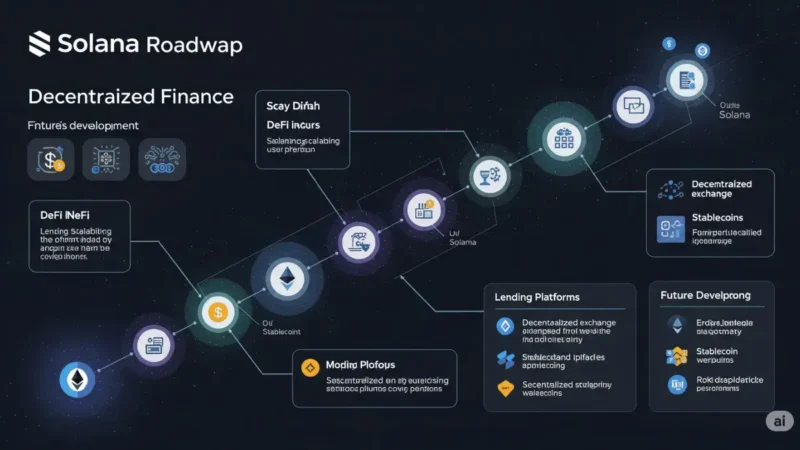Japan’s Regulatory Earthquake: Reclassifying Digital Assets as Securities to Cement Global Leadership

Key Points (TL;DR)
- The Japanese Financial Services Agency (FSA) is preparing a major crypto regulatory overhaul, expected to take effect in 2026.
- The core of the reform is the reclassification of digital assets (including major tokens like Bitcoin and Ethereum) as “financial products” under the Financial Instruments and Exchange Act (FIEA).
- This move places cryptocurrencies in the same legal category as securities and structured investment vehicles.
- The change will implement insider trading rules for the crypto market, enhance disclosure requirements for exchanges, and potentially allow banks to hold and invest in crypto.
- A key proposed component is a tax reduction on crypto profits from a progressive rate (up to 55%) to a flat 20% capital gains tax, aligning it with traditional stock trading.
- The goal is to strengthen investor confidence, curb speculative abuse, and position Japan as a leading, secure digital asset hub.
From Payment Method to Financial Product: A Paradigm Shift
Japan has long been a key player in the global cryptocurrency market, pioneering early legislation in the wake of the infamous Mt. Gox incident. However, its existing framework, primarily treating digital assets as a form of payment under the Payment Services Act, has proven insufficient for the maturing asset class. Now, the nation is preparing a sweeping overhaul that fundamentally redefines the legal nature of cryptocurrencies.
According to reports from the Asahi Shimbun, the country’s Financial Services Agency (FSA) is advancing plans to reclassify digital assets as financial products under the stringent Financial Instruments and Exchange Act (FIEA). This administrative maneuver is far more than technical; it represents a major pivot that pulls cryptocurrencies into the same legal category as traditional securities, bonds, and structured investment vehicles. This new crypto regulatory framework is set to become one of the most comprehensive among major economies, prioritizing investor protection and market integrity above all else.
The goal is to cultivate a more attractive and trustworthy climate for domestic and international investors. By integrating digital assets into the established legal architecture of traditional finance, Japan is effectively legitimizing crypto as a mainstream investment vehicle and reducing the ambiguity that has long hindered institutional adoption.
The Significance of the FIEA Reclassification
The shift of crypto regulatory oversight from the Payment Services Act (which focuses on anti-money laundering and consumer safety aspects of payment mechanisms) to the FIEA (which governs market conduct, insider trading, and investment solicitation) carries immense consequences.
By being recognized as a “financial product,” digital assets will immediately be subject to a host of stringent rules designed to protect investors and maintain market fairness:
- Insider Trading Prohibition: For the first time, market conduct rules familiar to equity traders will be formally extended to the crypto space. This will bar individuals or entities with access to non-public information—such as forthcoming token listings, delistings, or the financial distress of an issuer—from trading on that information before it is publicly disclosed. This vital step aims to combat deceitful practices and enhance accountability across the market.
- Mandatory Disclosure: Crypto exchanges will be obligated to furnish comprehensive disclosures on all the tokens they trade—including the roughly 105 cryptocurrencies currently listed domestically. This information will cover crucial facts about the asset’s issuer, its underlying technology, and its risk of price fluctuation. This surge in transparency empowers investors with the knowledge needed to make well-informed decisions.
- Registration for Solicitations: Companies that solicit investment in digital assets, even if they are not traditional exchanges, will likely be required to register with the FSA, subjecting their marketing and sales practices to enhanced scrutiny.
This heightened crypto regulatory burden will require significant investment in compliance infrastructure by exchanges, but the long-term benefit is a profound increase in credibility and institutional readiness.
The Tax Revolution: From 55% to 20%
While the classification change is the legal centerpiece of the overhaul, the proposed tax adjustments are the strongest immediate economic incentive for both retail and institutional participation.
Japan currently has one of the world’s most punitive crypto tax regimes, treating gains as miscellaneous income. This subjects high-earning traders to a progressive tax rate that can soar to an eye-watering 55% (including local inhabitant tax). This high rate has long driven domestic traders to use foreign platforms and has stifled innovation by creating immense fiscal hurdles.
The FSA is aggressively pushing for a reform to replace this system with a flat 20% capital gains tax on crypto profits, aligning it with the tax treatment for traditional stocks and bonds. This change is poised to:
- Attract Institutional Capital: A simplified, predictable, and competitive tax environment makes Japan a vastly more appealing jurisdiction for professional funds and financial institutions.
- Boost Market Liquidity: By reducing the tax burden, the new regime could significantly increase domestic trading activity and pull capital back from overseas platforms.
- Enable Loss Carry-Forward: Reports suggest the proposal may also include provisions for a three-year loss carry-forward, allowing investors to offset current losses against future gains, a standard feature of sophisticated financial markets that mitigates risk.
This tax adjustment, alongside the rigorous crypto regulatory framework, is a powerful combination aimed at fueling a digital economic renaissance in Japan.
Integrating Traditional Finance: Banks and Exchanges
Another compelling aspect of the FSA’s new direction is the potential opening of the door between traditional Japanese banking groups and the digital asset market.
Under the new classification, the FSA is reportedly considering relaxing restrictions to:
- Allow Banks to Hold Crypto: Traditionally conservative Japanese banks have been hesitant or outright barred from holding major cryptocurrencies like Bitcoin for investment purposes. The new rules could allow banking groups to acquire and hold digital assets, signaling full acceptance of crypto as a reserve and investment asset.
- Permit Bank-Affiliated Exchanges: The regulator is exploring whether the securities subsidiaries of major banking groups should be permitted to register and operate as licensed cryptocurrency exchanges. This would introduce highly trusted, well-capitalized players directly into the market, increasing competition and offering retail investors access via regulated financial channels they already use.
This integration is expected to drastically increase the perceived safety and reliability of the investment environment, particularly for retail users who may be wary of non-bank crypto platforms.
A Global Standard-Bearer
Japan’s history with the crypto market—from the 2014 Mt. Gox hack to the 2018 Coincheck theft—has resulted in a famously cautious, yet pioneering, crypto regulatory approach. The current overhaul demonstrates that the country has learned from past failures and is now focused on creating a resilient framework for the next phase of digital asset maturity.
By treating crypto as a financial product, Japan is essentially saying: Digital assets are legitimate investment instruments and will be governed by investment protection laws. This move aligns Japan with global trends seen in regions like the European Union (with MiCA) and the ongoing efforts in the United States to establish clarity.
Stay informed, read the latest crypto news in real time!
If successfully implemented by the 2026 timeline, Japan’s new crypto regulatory structure—combining tough market conduct rules with a favorable tax environment—could cement its position as a global leader and a model for other major economies seeking to balance innovation with systemic stability.






